Hyperdimension Neptunia Re;Birth 1 is a retelling of the original game. A former goddess, Neptune, was cast from the heavens. Her injuries left her with amnesia, so she sets out on a quest to figure out who she is. Along the way, she discovers that the mortal realm is under attack by monsters. Neptune needs to convince the goddesses to work together to stop the monsters and their evil creator. She also has to figure out her identity, guided by Histoire, a voice who tasks her with finding key fragments. The plot may be the same, but the details are different. Characters have been changed or removed, or new characters have been introduced. Even if you played the first game, there's a lot of new information and content here, although fans may be disappointed at the removal of favored characters.
How much enjoyment will you get from Re;Birth? That depends on how much you enjoy inside jokes. From the moment the game starts, it is full of anime and video game inside jokes and references, many of which can be pretty obscure for veteran gamers. Can you recognize references to obscure NES games? Do you know what TRANS-AM refers to? If so, you're far more likely to understand Neptunia's sense of humor. As with many other Compile Heart games, Re;birth is heavily laden with boob jokes and sexual innuendo, although it usually takes a back seat to the inside jokes. If that sort of humor sounds tedious, Re;Birth isn't going to be your kind of game, but fans of the franchise should find it to be pretty fun.
Re;Birth follows the common RPG system of veering between plot events and dungeons. There is a world map, but it is mostly there for you to select which town or dungeon to visit. The dungeons are populated with enemy encounters, and the emphasis is on reaching the end of the dungeon or a certain event to advance the plot or fight a boss. Players can use a search option to find hidden objects, but that just involves pounding the Square button while you walk, Wild Arms 2-style, on the off chance of making an invisible item appear.
Re;Birth's combat system has been rebuilt from the ground up. It's based on the system found in the later Neptunia games and has nothing in common with the original release. Combat is turned-based, so when a character's turn comes up, he can move freely around the battlefield, although every character has a set movement range. Choosing to attack creates a targeting reticle in front of you. Different characters have different attack ranges. One of the characters, IF, can only attack in a small square in front, while Noire can attack in a long rectangle in front, making it easier hit multiple enemies at once. Any enemy within your targeting range will be hit once you attack, but that goes both ways. If you bunch up your characters, an enemy can attack more than one of your characters at the same time, and that can be pretty disastrous.
You can select from three different kinds of attacks: break, power and rush. You can string together multiple attacks from different types into combos, with up to four attacks each. Enemies have two different HP bars — guard bar and HP bar — and attacks do different damage to each. As long as an enemy has a guard bar, he'll take reduced damage to the HP bar. Break attacks are focused on damaging the guard bar but with reduced HP damage. Power attacks are the opposite and do lots of HP damage but with reduced guard damage. You're going to default to using guard-breaking attacks until guard is broken and then swap over to Power attacks. It's still pretty fun, especially when you take positioning into account.
Rush attacks are special attacks that are gained via leveling or by setting a character who isn't in battle as your partner. These attacks may be weaker, but they're more situational. You'll rarely use rush attacks as part of a regular combo string, but they're important because they raise your EXE drive meter, which is used for finishing moves. As long as your bar is over a certain level, you'll be able to use the EX finish, although it depends on the level of the attack. There are also special EXE drive attacks that do a ton of damage but drain the meter. These incredibly powerful finishers are balanced by disabling EX finishers until you build up your EXE drive meter again.
EXE drive is an interesting concept but not really well executed. Early on, the bar fills up so slow that it's pretty unsatisfying. You have to spend a few fights to build it up, and the idea of using it in combat feels terrible given how much of a drop in DPS (damage per second) it causes. Eventually, you'll unlock special Remake Plans that make it easier to build up your rush bar in a single battle, but at that point, it feels like it becomes a matter of spamming Drive attacks. It's not a terrible system but it never feels like a well-integrated part of the combat system. As a result, rush attacks get left by the wayside for most of the game, and you'll default to break and power attacks for most fights.
The combos are customizable. You'll begin with certain moves and unlock more as you progress, and each character has a selection of break, power and rush moves. Equipping moves costs combo points (CP). Some moves are extremely powerful but have high CP costs. Others have certain elemental affinities or can cause bad status effects. In general, you'll find a safe set of moves and stick to them, but the opportunity to create a custom move set is a nice feature.
In addition to regular attacks, you also have special moves and HDD moves. You use SP to cast special moves, and they unleash special attacks that do massive damage, heal allies, buff characters or debuff enemies, and so on. Hard Drive Divinity (HDD) is a special mode that certain characters can enter that transforms them into an alternate form, which has huge native stat boosts that make them remarkably powerful, but they cost a huge chunk of SP. Players must strategically decide on the best time or place to use them, but once you get a healthy collection of SP-restoring items, you can use them in almost any battle without any worries.
Re;Birth's combat system is a huge step over the original, but it does have some problems. Stat increases make battles a bit lopsided. It's pretty rare for a fight to hit a perfect sweet spot where you feel powerful enough to take it but not so powerful that it isn't a challenge. In some cases, the act of gaining a single level or changing a piece of equipment takes a fight from overwhelming to easy. It's also quite repetitive. After a while, fights feel pretty similar, and the simplicity can wear thin. Bosses never have enough personality to stand out, although there are some fun fights here and there.
One of the cool new concepts is the Remake system. Since the game is set in a video game world, everyone recognizes that it is a remake of an existing game. Part of how that plays out is that you're allowed to use special mechanics to "remake" the game. What this amounts to is a heavily customized crafting system. You'll find plans throughout the game, either given to you by other characters or discovered in dungeons. Plans are things you can craft, and in some cases, they unlock new items, features and abilities, such as additional dungeons, new features, and passive bonuses. You can increase the strength of enemies, gain additional experience points, unlock the ability to instantly defeat weak enemies, alter the drops from stages, and tons of other things. In some cases, the changes are permanent, and in other cases, they can be toggled on and off. You have to spend MB (Megami Bytes), which are somewhat limited, so you have to carefully consider which remake options you select.
The Remake system allows for a nice level of customization. If you don't want to advance the story, you can play around by unlocking new dungeons or areas or by grinding up unlocks. You can even boost the difficulty or number of enemies in a stage to grind up levels. There are a lot of cases where unlocking something involves tedious grinding to obtain the appropriate materials. Re;birth is a grindy game, which really hurts its pacing. While you almost always have something to do, something is often gated until you get the right drop or reach the appropriate level. It makes the pacing of the game feel rather awkward.
Neptunia Re;Birth is a simple-looking game. The cut scenes are told through simple visual novel-style sprites with some still artwork mixed in. The artwork is a little bizarre since they decided to have the character's chest (or chest area) "bounce" during the artwork by distorting the still frame. The artwork seems nice enough if you like the art style, and there's a good mix of character facial art. The 3-D character animations are a little stiff. In particular, while you're in the dungeons, the walking animation looks really silly. Combat animations are a bit better, especially some of the super moves.
One aggravating thing about Neptunia Re;Birth 1 is the font choice. The font for the menus and map text is entirely too small and looks blurry and uncomfortable to read on the Vita's screen. This isn't a problem for the cut scenes, which have nice, clear text. It isn't anything that renders the game unplayable, but reading certain things involves a lot more squinting than should be necessary. The voice acting is pretty typical for this type of game, with a mix of reasonably good-but-not-great English actors and the requisite Japanese voice acting. The music does its job but is strictly unmemorable.
Hyperdimension Neptunia Re;Birth 1 is an improvement on the original game. Pretty much every element has seen a significant improvement, but it's still far from perfect game. Anyone who dislikes the plot or characters in the original version is unlikely to change their mind with the remake, despite the numerous changes. The core combat system is more enjoyable but can get grindy and repetitive. The off-the-wall plot and humor should appeal to fans of the franchise but may be a turn-off to more casual JRPG fans. At the end of the day, Re;Birth 1 is one of the most drastically improved remakes I've encountered. The game is still flawed in many places, but any fans of the franchise should find it to be a must-have replacement for the original.
Score: 7.0/10
More articles about Hyperdimension Neptunia Re;Birth1



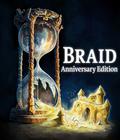
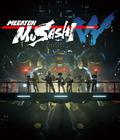
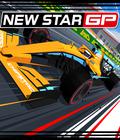

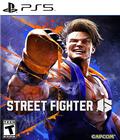



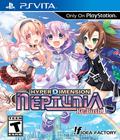 Hyperdimension Neptunia Re;Birth1 is a remake of 2011's Hyperdimension Neptunia featuring renewed event conversations, graphics, and newly added game mechanics.
Hyperdimension Neptunia Re;Birth1 is a remake of 2011's Hyperdimension Neptunia featuring renewed event conversations, graphics, and newly added game mechanics.











































